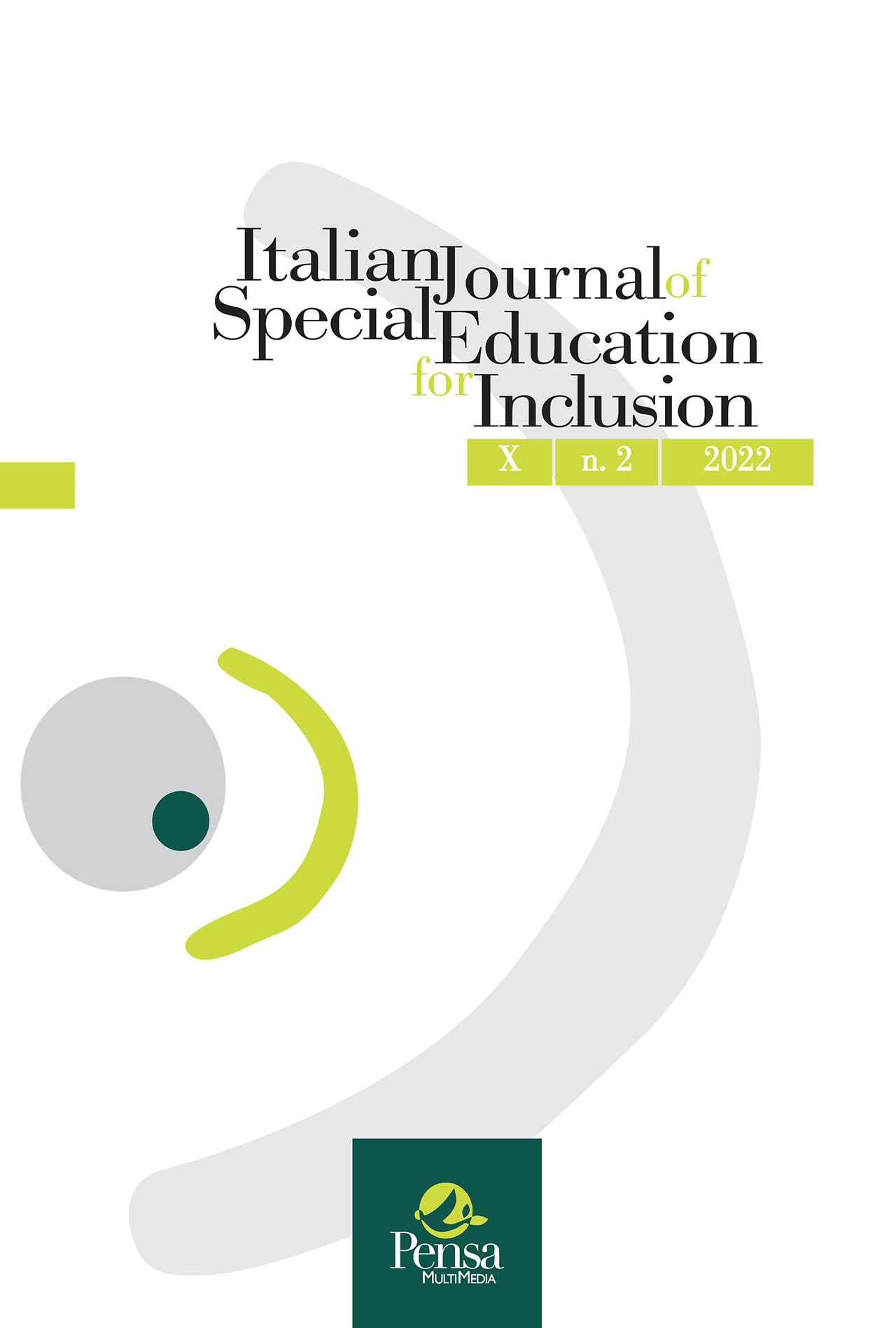Designing an accessible and sustainable classroom curriculum for reading comprehension between school and university.
A research project
DOI:
https://doi.org/10.7346/sipes-02-2022-08Abstract
The Universal Design for Learning framework represents one of the main levers of change to contribute, in the school, to make learning sustainable, inclusive and transformative for all. The article presents a quasi-experimental research project. The project began with the idea that inclusive design represents a starting point of a strategic nature capable of indicating a series of operational possibilities valid in specific learning contexts to characterize them as effective training contexts. Starting from a benchmark model developed by SApIE, the project envisaged both the preparation of a didactic kit for the use of the reciprocal teaching-RT strategy for the development of the comprehension of the written text in third grade primary school classes also attended by students. with special educational needs-SEN, and the realization of a teachers training of the experimental classes, aimed at promoting their skills for the application of RT.
The effect sizes obtained by students with typical development and with SEN demonstrate the effectiveness of the program, especially for the latter, whose results show 5 months of gain in learning of the experimental group compared to the control group on reading comprehension ( ES = + 0.38), 6 months on vocabulary (ES = + 0.45) and 7 months on summary +0.56.


